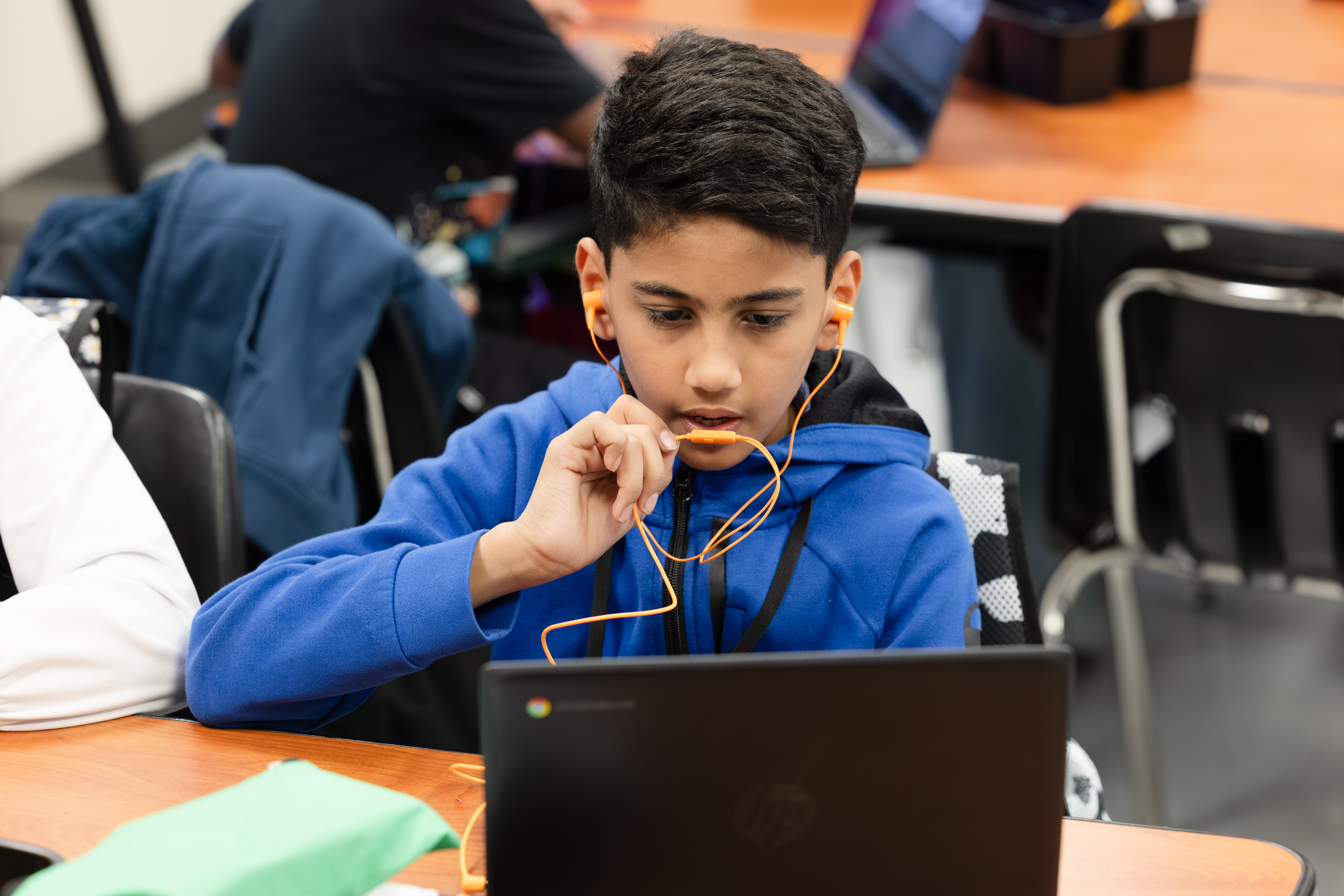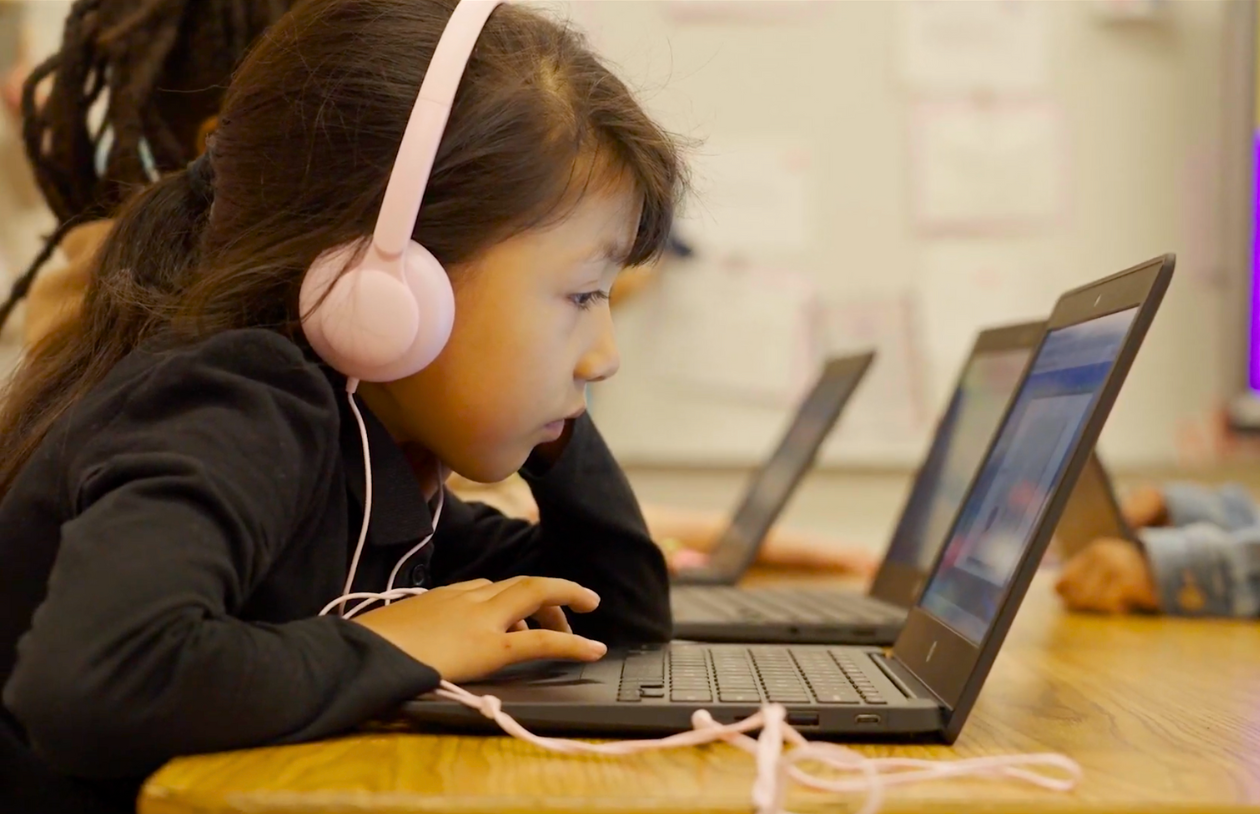How Edtech Supports Accelerated-Learning Strategies

The Difference Between Accelerated-Learning Strategies and Remedial Services
In the field of education, we often hear about the need for remedial education for students we perceive as behind their peers in subjects like reading, writing, and mathematics.
However, remedial education is expensive, and the means for identifying students in need of remediation are too varied among contexts. As education researchers analyze the impact of the COVID-19 pandemic on learning progress in the United States, it is important to consider effective strategies to facilitate student mastery of essential skills that involve critical thinking, problem-solving, collaboration, and metacognition.
Accelerated-learning strategies show much more promise than remedial instruction. With accelerated learning, higher-order skills are prioritized and taught through creative, engaging pathways, whereas remedial instruction typically focuses on basic academic skills outside of a larger context. Moreover, grade-level, accelerated-learning instruction is based on perceived assets and strengths, avoiding the most common pitfalls of remedial instruction such as focusing on deficits and cramming too much content into one grading term without paying proper attention to performance.
3 Ways Edtech Supports Accelerated-Learning Strategies
Educational technology — also known as edtech — helps educators achieve their accelerated-learning goals by providing them with the data to scale their interventions and the supporting resources to do so. The key for students is connecting engaging content and processes to prioritized learning objectives.
A good edtech program helps educators roll out an effective accelerated-learning strategy at the district and school level by providing adaptable programming, personalized learning plans, and teacher time-management capabilities.
1. Edtech enables adaptable programming based on real-time data
We mentioned that accelerated learning is geared toward meeting the needs of individual learners. Adaptable programming makes it easier for teachers to identify their students’ greatest needs, make quick adjustments in lesson plans, scaffold learning, and provide differentiated instruction.
What does this look like in a twenty-first-century classroom? Teachers can accelerate learning by using recent data to sort students into collaborative groups, offer opportunities for extended learning or extra practice, and motivate students to learn by granting them control over various elements of their learning experience.
With programs like Istation, teachers can identify students’ needs through real-time data that can help monitor and provide insights for future lessons.
2. Edtech helps teachers personalize learning plans based on the needs of individual students
In any class of 20 or more students, there will be a variety of strengths and areas needing improvement. There may be some students who receive special education services, other students whose native language is not English, and still others identified as academically or artistically gifted and talented.
Edtech provides engaging, interactive content for learners of all abilities and often creates opportunities for explicit, direct instruction in areas where students need it the most.
Rather than forcing an entire class of students through content that most of them have already mastered, accelerated-learning strategies allow those who excel in a subject or standard to move forward. This encourages students to stay curious and excited about new content.
At the same time, the interventions for students who are struggling with a particular task or concept are still accelerated through the ability to access LexileⓇ levels, assessment scores, and other performance data. Accelerated-learning strategies move students forward into their strengths rather than backward into a confidence-deflating loop.
3. Edtech saves teachers’ time through centralized tools and systems
Edtech has done wonders for classroom teachers who must focus on monitoring progress in order to adjust future instructional plans. Tools that offer scripted lessons, printables, simulations, formative assessment games, and learning management systems enable the teacher to focus on delivering instruction with resources at their fingertips.
Some teachers spend hours grading assessments that edtech tools can accomplish in minutes or even seconds. With less time spent on grading, teachers can devote more time to providing meaningful feedback to students.
Many students struggle with organization and being prepared for class, but by using a learning management system or virtual binder to house all materials, teachers and students spend less time searching high and low for necessary documents and more time devoted to direct instruction, guided practice, collaboration, and independent mastery.
The beneficial elements of educational technology help districts, principals, curriculum developers, and teachers build long-term strategies to empower and enlighten their students.
With the constant need to catch students up to grade-level standards, edtech can support any accelerated-learning program your district has in place. Find out more about Istation and see if it is right for you!
Read more from the AI & The Reading Brain Blog


.avif)





